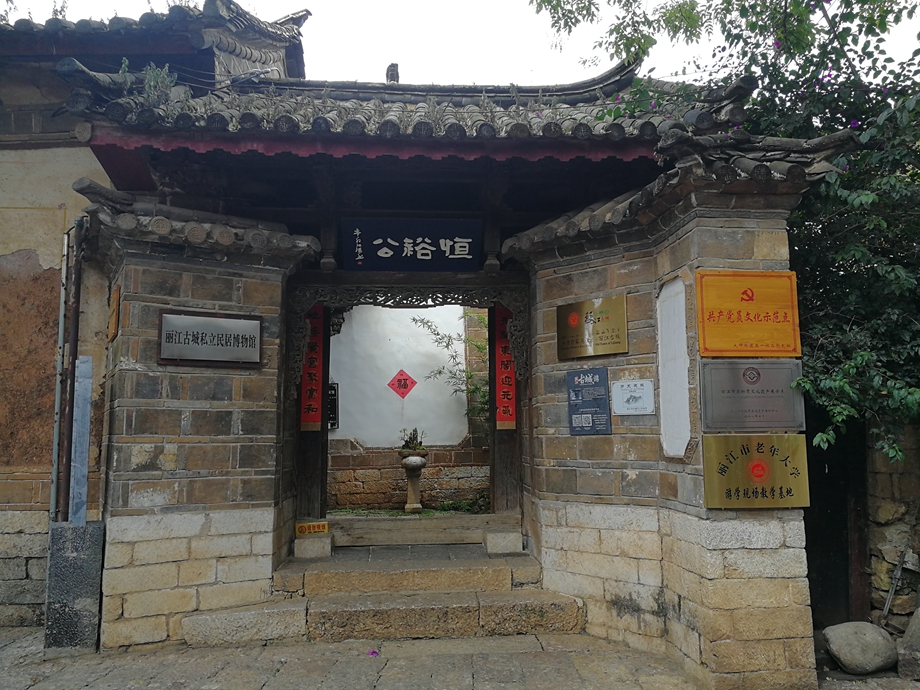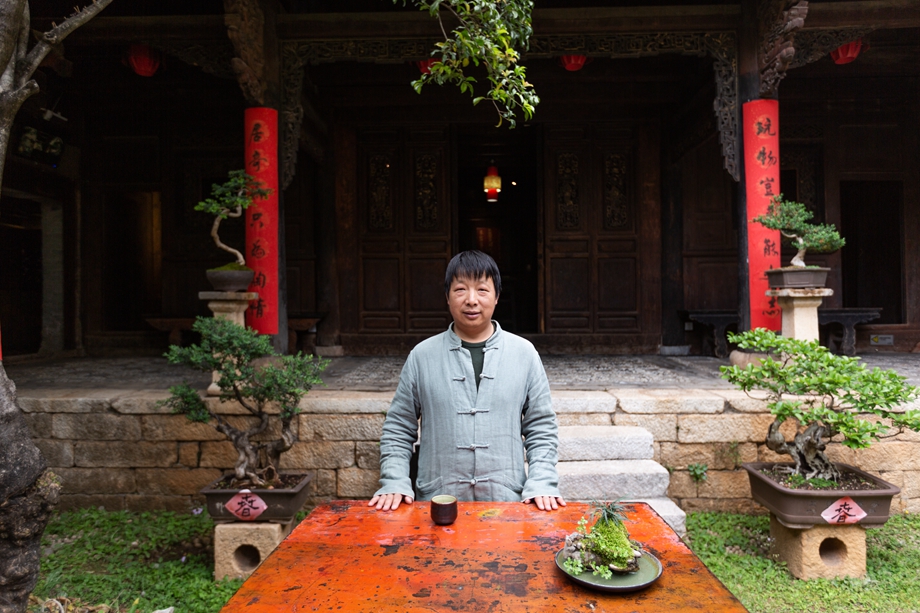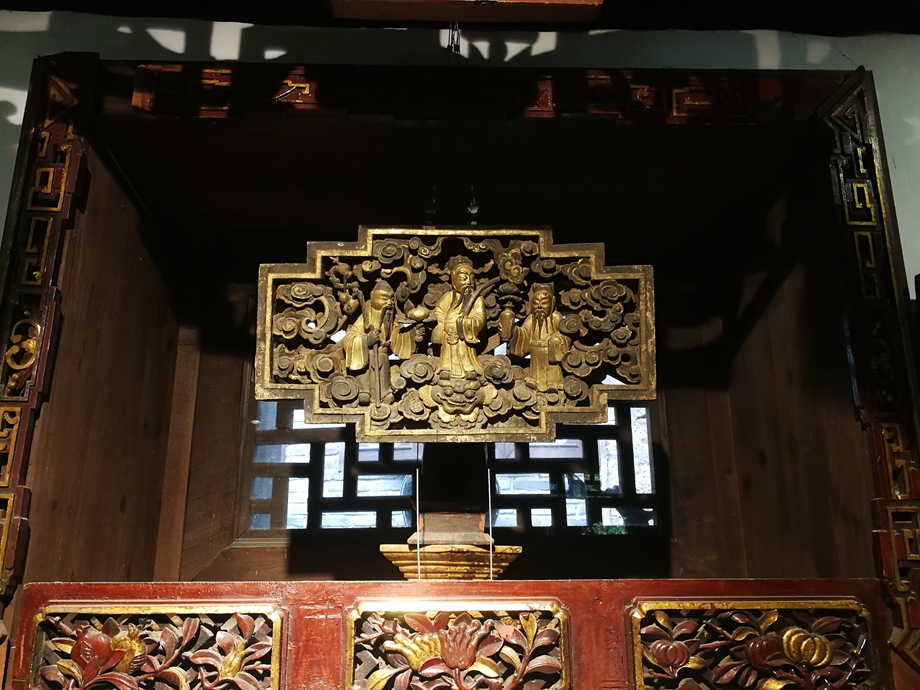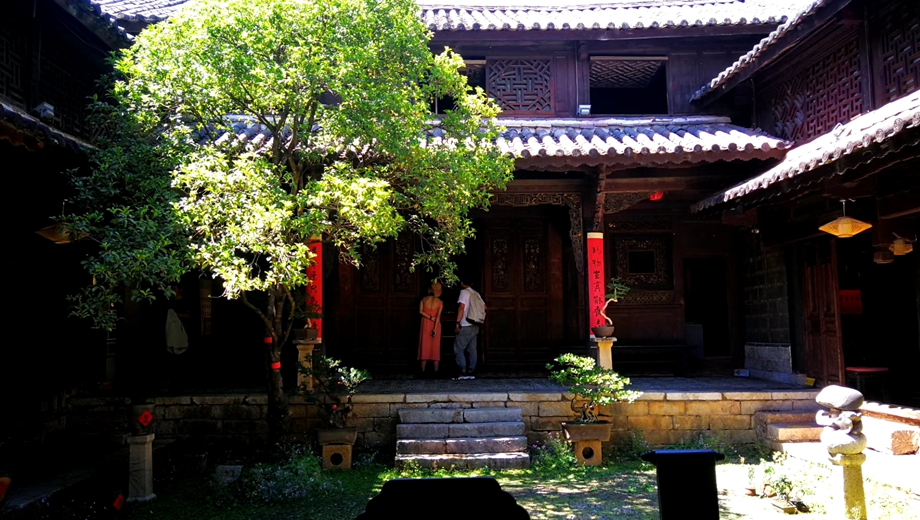Uncle Six and Hengyugong, a century-old house in Lijiang

In the hustle and bustle of the old town of Lijiang, northwest Yunnan, there is an old Naxi house built in 1875. The owner of the house is named Li Junxing. Because Li ranks sixth among his siblings, locals are used to calling him "Uncle Six", who is the thirteenth generation descendant of the Li clan. The ancient house Li owned is called "Hengyugong", a residential museum in Lijiang. Now the historic house is frequented by visitors who come for its charm and the Naxi culture.
Storytelling in the old house

Every morning, Uncle Six will come to "Hengyugong," receiving the visitors. Uncle Six is of medium build, wearing a blue linen coat and talking with grace. "Please come in and take a look," said Li, with a plain but honest smile on his face.
The gate of the ancient house was left unlocked, with the wood grain visible on the solid door panels. Entering the courtyard, one can see a quiet surrounding bathed in the morn sunshine. The Hengyugong house is a four-room and five-patio structure. There is one main room, two wings and one lower room in the yard. The main room faces south, which are higher than others.

The main room is also where the family hall lies. “In traditional Chinese architecture, the hall is where the host meets the guest, with sunshine available during their talks,” said Uncle Six. Windows of the hall are decorated by delicate wooden carvings with vivid and auspicious symbols.
"The side rooms for the elders are next to the main room." Uncle Six took the visitors into the side rooms, in which antiques are placed in arrays. Opening a stainless wooden box, he took out a yellowish account book with great care. "My great grandfather jotted down items on this book when he was doing business." Uncle Six said with a smile. Seeing the visitors showed interest in the large chest in the corner, he explained that it is actually a safe for the Naxi people. In the past, most households had a similar safe for the elders to save copper coins. When the chest was full of coins, the sum in it was big enough to build a yard or buy a few shops."
Later on, Uncle Six took his guests into the west wing. The wing room is of moderate size, with a delicate wood carving hanging in the middle. Showing the three gods of fortune, prosperity and longevity, the carving piece represents, according to Uncle Six, “sophisticated craftsmanship in characterization.”

"This piece used to be placed on the gate," said Uncle Six with pride. Taking a closer look, the visitors were impressed by the striking lines and lively characters. The god of Wenchang(cultural prosperity) in the middle steps on a lion that has an air of joy. "The whole family used to eat here, and a story-telling event was held weekly in the wing room by my forefathers, with local scholars invited in." In traditional Naxi architecture, the wing is subordinated to the main living room. As the venue for leisure, party and dinner, the wing room shows typical lifestyles of the Naxi people, highlighting the most human concerns and customs in a Naxi courtyard.
Saving the ancient Naxi buildings

Beside the gate of Hengyugong, there is a Jingrenbang stele to show respect to the kindhearted, with their names engraved on it. And Lin Xiaoxi is the first on the name list. "Whenever a tourist enters the old house, I will mention the names,” said Uncle Six. “Without their help, the old house could not have survived the times."
Back to 2000, Hengyugong reached a critical stage. "Suffocated, I can't hold it anymore,” said Uncle Six. “I feel the old house can't be preserved." In that year, many buyers were in a bid to get the old house, with the price soaring all the way to 130 million yuan. On the one hand, the buyers were offering high prices, and on the other hand, I had financial difficulty in maintaining the house. It was in the dilemma when Uncle six came across good man Lin Xiaoxi.

Lin Xiaoxi, a Taiwan businessman, visited Lijiang in 2009 and was injured by accident. During his recovery, he got to know Uncle Six and they became close friends. When Uncle Six was about to run out of money in maintaining Hengyugong, Lin offered a helping hand to ease the financial difficult. In 2015, Uncle Six again fell into financial trouble, which was solved by Lijiang Old Town Administration with a sum of 200,000 yuan. Funded by the government, Uncle Six gained more confidence. "What I saw is not money, but hope to protect the old Naxi buildings in Lijiang."
Hengyugong, a century-old ancestral house, has tided over the challenging times. Nowadays, other ancient buildings in Lijiang have also received sound maintenance, and the protected old houses became signatures of local culture. Forty years of perseverance also allowed Uncle Six to see a coming new era, when the historical building of the Li clan will be kept for future generations. "I’ve lived in the old house for more than forty years,” said Uncle Six. “And I’m just its guardian, hoping to more visitors who could see the Naxi culture at the old house or others in Lijiang."

Reporting by Duan Jianxin and Liu Jiatong; trans-editing by Wang Shixue